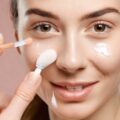When it comes to caring for your skin, knowing whether to see a dermatologist or an esthetician can be confusing. Both professionals offer valuable services, but they specialize in different aspects of skin care. This article will help you understand the differences and make an informed decision.
What is a Dermatologist?
A dermatologist is a medical doctor who specializes in diagnosing and treating skin, hair, and nail conditions. Dermatologists undergo extensive medical training, including medical school, a residency program, and often additional fellowship training in specific areas of dermatology.
- Education: Dermatologists complete at least 12 years of post-secondary education and training.
- Scope of Practice: Dermatologists can diagnose and treat a wide range of skin conditions, prescribe medications, and perform surgical procedures.
- Common Conditions Treated: Acne, eczema, psoriasis, skin cancer, and more.
What is an Esthetician?
An esthetician is a skin care specialist who focuses on improving the appearance of the skin through various treatments and procedures. Estheticians are licensed professionals who typically complete a state-approved cosmetology or esthetics program.
- Education: Estheticians complete a training program that typically lasts 600-1500 hours, depending on state requirements.
- Scope of Practice: Estheticians can perform facials, chemical peels, microdermabrasion, and other non-invasive treatments.
- Common Treatments Offered: Facials, waxing, exfoliation, and other skin care treatments.
When to See a Dermatologist
It’s important to see a dermatologist if you have a medical skin condition or if you need a diagnosis and treatment for a more serious skin issue. Here are some situations where a dermatologist is the right choice:
- Persistent or severe acne
- Suspicious moles or skin growths
- Chronic skin conditions like eczema or psoriasis
- Skin infections
- Skin cancer screenings
Dermatologists can provide medical treatments, prescribe medications, and perform surgical procedures when necessary.
When to See an Esthetician
If you’re looking to improve the overall appearance and health of your skin, an esthetician may be the right choice. Estheticians are skilled in providing cosmetic treatments that can enhance your skin’s texture and appearance. Consider seeing an esthetician for:
- Regular facials and skin care maintenance
- Exfoliation treatments like chemical peels and microdermabrasion
- Hydration and anti-aging treatments
- Waxing and hair removal
- Skin care advice and product recommendations
Estheticians can help you establish a good skin care routine and provide treatments that complement your dermatologist’s care.
Combining Care from Both Professionals
For optimal skin health, you may benefit from seeing both a dermatologist and an esthetician. Dermatologists can address medical skin concerns, while estheticians can help maintain and enhance your skin’s appearance. Many people find that combining the expertise of both professionals leads to the best results.
Communication between your dermatologist and esthetician is crucial to ensure that treatments are complementary and not conflicting. Always inform both professionals of any treatments or products you are using.
FAQ
1. Can an esthetician diagnose skin conditions?
No, estheticians are not medical doctors and cannot diagnose skin conditions. They can, however, recognize common skin issues and refer you to a dermatologist if necessary.
2. Do dermatologists perform cosmetic treatments?
Yes, many dermatologists offer cosmetic treatments such as Botox, fillers, laser therapy, and chemical peels in addition to medical treatments.
3. How often should I see an esthetician?
The frequency of visits to an esthetician depends on your skin care goals and needs. For general maintenance, monthly visits are common, but your esthetician can recommend a schedule that works best for you.
4. Are the treatments provided by estheticians safe?
Yes, treatments provided by licensed estheticians are generally safe. However, it’s important to choose a reputable and experienced esthetician to ensure the best outcomes.
5. Can I see both a dermatologist and an esthetician at the same time?
Absolutely. Many people benefit from the combined expertise of both professionals. Just make sure to keep both informed about the treatments and products you are using.









